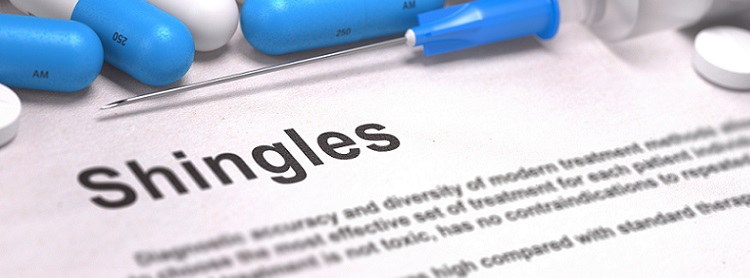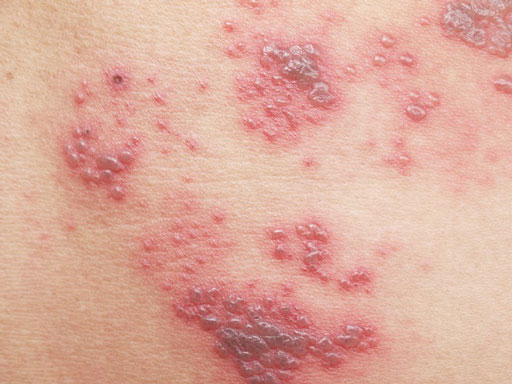
Everything you need to know about shingles
Including how to get vaccinated
If you’ve ever had the chickenpox, you know how painful and itchy it can be. And you may think you can’t get the virus again. But did you know that the same virus that causes chickenpox also causes shingles?
Here’s what you need to know:
What is shingles?
Shingles is a painful skin rash that’s caused by the varicella-zoster virus. When you recover from chickenpox, the virus doesn’t go away. Instead, it “sleeps” in your nerve roots.

In some people, the virus stays dormant forever. But in others, the virus “wakes up” when disease, stress or aging weaken your immune system. The virus travels up your nerve roots, which supply feeling to your skin along a pathway on each side of your body. Once the virus is active again, it can only cause shingles, not chickenpox.
What are the symptoms?
Shingles symptoms appear in stages. At first, you may get headaches or feel like you have the flu, but without a fever. You may also be sensitive to light, have trouble thinking clearly or feel dizzy and weak.
A few days or even weeks later, an area of your body or face will feel itchy, tingly or painful. This is where a rash will appear. The rash will eventually turn into a cluster of blisters that are filled with fluid.
Who can get shingles?
Anyone can get shingles, but only if they’ve had chickenpox. It’s most common in adults over 50 years old and people with weak immune systems, but kids can get the virus too.
There is a small chance that someone with shingles can spread the virus to someone who’s never had chickenpox or the chickenpox vaccine. But if you haven’t had either and you’re exposed to the virus, you can only get chickenpox. Most people who get shingles won’t get it again. But it is possible to get it more than once.
Is there a vaccine to prevent shingles?
Yes. Shingrix is a vaccine that is more than 90 percent effective in preventing shingles. And if you do get the virus, the vaccine can reduce the pain and clear the rash up quicker.
Unfortunately, there is a nationwide shortage of the vaccine as of spring 2018 and our clinics have limited supply. We’re working directly with the manufacturer to get as many doses of the vaccine as we can, but the shortage is expected to last into 2019.
If you’ve received the first dose of Shingrix, you may be concerned about receiving your second dose. The good news is that after the first dose, you’re about 70 percent protected against shingles. The Centers for Disease Control has also said that patients can receive their doses separated by more than six months and it will still be effective.
We will continue to post updates about the vaccine as information becomes available.
How is shingles treated?
Antiviral and pain medicine are used to treat the virus. Taking your medicine immediately can help your rash heal faster and be less painful. Avoid contact with people until your blisters crust over. It’s especially important to avoid contact with people who are at risk, like pregnant women and infants. Talk with your doctor immediately if you think you have shingles.
Looking to find a new doctor? Browse primary care doctors who see patients in our HealthPartners and Park Nicollet clinics in the Twin Cities, Central Minnesota and Western Wisconsin.